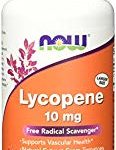 Hundreds of studies have shown that the carotenoid lycopene supports prostate and cardiovascular health, and helps prevent macular degeneration and certain types of cancer. A study done at the Krishnadevaraya College of Dental Sciences in Bangalore, India has demonstrated that tomato lycopene may also be effective in treating and preventing gingivitis.
Hundreds of studies have shown that the carotenoid lycopene supports prostate and cardiovascular health, and helps prevent macular degeneration and certain types of cancer. A study done at the Krishnadevaraya College of Dental Sciences in Bangalore, India has demonstrated that tomato lycopene may also be effective in treating and preventing gingivitis.
According to the National Institute of Dental and Craniofacial Research, about 80 percent of U.S. adults currently have some form of gum disease. It ranges from gingivitis, simple gum inflammation, to serious disease that results in damage to the bone. In gingivitis, the gums become red and swollen and bleed easily. Most people can reverse this with daily brushing, flossing, and seeing their dentist regularly. Untreated gingivitis can lead to periodontitis. The gums pull away from the teeth and form pockets that are infected. If not treated, the bones, gums and connective tissue that support the teeth are destroyed.
Additionally, research has shown that there is an association between periodontal diseases and other chronic inflammatory conditions, such as diabetes, cardiovascular disease, and Alzheimer’s disease. For instance, the bacteria that cause periodontitis can travel through your bloodstream to the arteries in your heart, triggering a cycle of inflammation and arterial narrowing that contributes to heart attacks.
The Indian study compared just taking lycopene as a supplement to a combination treatment of taking tomato lycopene and root scaling and planing in patients with gingivitis. Twenty otherwise healthy patients with clinical signs of gingivitis participated in a randomized, double-blind, parallel study. The subjects were either given 8 mg tomato lycopene a day for 2 weeks, the supplement plus oral prophalaxis, placebo or just prophalaxis.
The groups that were treated demonstrated significant reductions in gingivitis, but the group that received both lycopene and prophylaxis showed a statistically significant reduction in symptoms.
The results presented in this study suggest that tomato lycopene shows great promise as a treatment for gingivitis. The researchers noted that the possibility of obtaining an additive effect by combining routine oral prophylaxis with lycopene is also an exciting possibility, which deserves further study.
Reference
Chandra RV, Prabhuji ML, Roopa DA, Ravirajan S, Kishore HC. Efficacy of lycopene in the treatment of gingivitis: a randomised, placebo-controlled clinical trial. Oral Health Prev Dent. 2007;5(4):327-36. Abstract
A Role for Tomato Lycopene Extract in Colon—and Possibly Other Types of Cancer—Prevention
A number of population studies have found a strong correlation between high blood levels of insulin-like growth factor-I (IGF-1) and increased risk of colon, prostate and breast cancer. New research suggests lycopene supplementation may provide some protection by significantly lowering IGF-1.
While necessary for proper growth in children, IGF-1 has been linked to tumor growth in adults in a number of studies, including two large trials jointly conducted by Harvard Medical School and Brigham and Women’s Hospital: a six-year study of 32,826 nurses, which found that those with the highest levels of IGF-1 had a two-and- a-half times greater risk of colorectal cancer, and a study of 14,916 male physicians, which concluded that men run the same risk. (Wei EK, Ma J, et al. Cancer Epidemiol Biomarkers Prev 2005; Ma J, Pollak MN, J Natl Cancer Inst., 1999)
Earlier data from the study on male physicians also showed that men with the highest levels of IGF-1 had more than four times the risk of prostate cancer than those with the lowest levels. ( Chan JM, Stampfer MJ, et al. Science 1998) And other research involving premenopausal women found that those younger than 50 with high IGF-1 levels had two-and-a-half times the relative risk of breast cancer compared to those with the lowest levels. (Schernhammer ES, Holly JM, et al. Cancer Epidemiol Biomarkers Prev., 2005)
This new study, a double-blind, placebo-controlled trial of 56 colon cancer patients, suggests supplementation with the carotenoid, lycopene, may have a role to play in the prevention of colon and possibly other types of cancer. Researchers recruited colon cancer patients already scheduled for colectomy (removal of all or part of the colon) a few days to a few weeks before surgery. In patients given lycopene, blood levels of the carotenoid quickly increased twofold, accompanied by a 25% drop in IGF-1. No changes in lycopene or insulin-like growth factor levels were seen in the controls. (Walfisch S, Walfisch Y, et al. Eur J Cancer Prev., 2007)
References
Wei EK, Ma J, Pollak MN, Rifai N, Fuchs CS, Hankinson SE, Giovannucci E. A prospective study of C-peptide, insulin-like growth factor-I, insulin-like growth factor binding protein-1, and the risk of colorectal cancer in women. Cancer Epidemiol Biomarkers Prev. 2005 Apr;14(4):850-5.
Abstract
Ma J, Pollak MN, Giovannucci E, Chan JM, Tao Y, Hennekens CH, Stampfer MJ. Prospective study of colorectal cancer risk in men and plasma levels of insulin-like growth factor (IGF)-I and IGF-binding protein-3. J Natl Cancer Inst. 1999 Apr 7;91(7):620-5.
Abstract
Chan JM, Stampfer MJ, Giovannucci E, Gann PH, Ma J, Wilkinson P, Hennekens CH, Pollak M. Plasma insulin-like growth factor-I and prostate cancer risk: a prospective study. Science. 1998 Jan 23;279(5350):563-6.
Abstract
Schernhammer ES, Holly JM, Pollak MN, Hankinson SE. Circulating levels of insulin-like growth factors, their binding proteins, and breast cancer risk. Cancer Epidemiol Biomarkers Prev. 2005 Mar;14(3):699-704.
Abstract
Walfisch S, Walfisch Y, Kirilov E, Linde N, Mnitentag H, Agbaria R, Sharoni Y, Levy J. Tomato lycopene extract supplementation decreases insulin-like growth factor-I levels in colon cancer patients. Eur J Cancer Prev. 2007 Aug;16(4):298-303.
Abstract
Lycopene – Help for Male Infertility
Free radicals are harmful to the health and function of sperm. Lycopene, a well known player in human’s antioxidant defense system against free radicals, is found in high concentrations in the testes and seminal plasma, but decreased levels are seen in men suffering from idiopathic infertility.
Male idiopathic infertility (failure to conceive after 1 year of unprotected regular sexual intercourse) may be associated with low sperm concentration (oligozoospermia), poor sperm motility (asthenozoospermia) or abnormal sperm morphology (teratozoospermia). Supplementation with lycopene may address all three issues.
Thirty men with idiopathic infertility were given 2,000 mcg of lycopene twice a day for three months. Twenty patients (66%) showed an improvement in sperm concentration, sixteen (53%) had improved motility and fourteen (46%) showed improvement in sperm morphology. In cases showing an improvement, the median change in concentration was 22 million/ml, motility 25% and morphology 10%. Although the ten men whose baseline sperm concentration was less than 5 million/ml experienced no significant improvement, the other twenty, who began the study with baseline sperm concentrations higher than 5 million/ml, experienced significant improvement, resulting in six pregnancies in 26 patients (23%). (Gupta NP, Kumar R. Int Urol Nephrol. 2002)
Other research has confirmed that lycopene levels in human semen can be significantly increased by dietary lycopene supplementation. (Goyal A, Chopra M, et al. BJU Int. 2007)
References
Gupta NP, Kumar R. Lycopene therapy in idiopathic male infertility–a preliminary report. Int Urol Nephrol. 2002;34(3):369-72. Abstract
Goyal A, Chopra M, Lwaleed BA, Birch B, Cooper AJ. The effects of dietary lycopene supplementation on human seminal plasma. BJU Int. 2007 Jun;99(6):1456-60. Epub 2007 Mar 2.
Abstract
